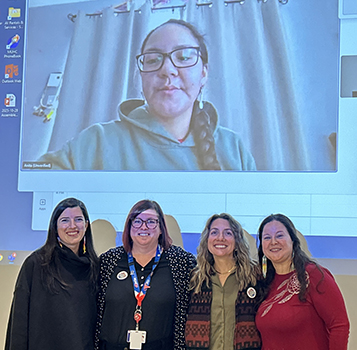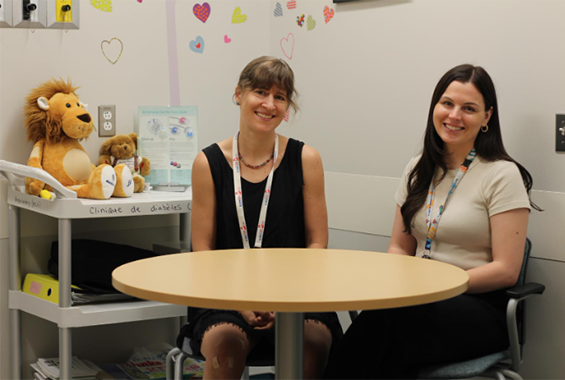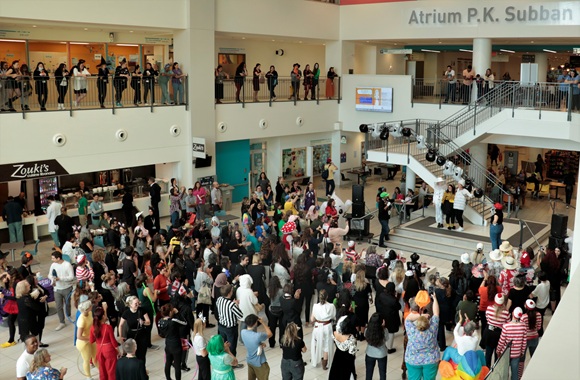MUHC in the Media - November 3, 2025

Giving birth: increasing cultural safety for Indigenous women
Each year, an average of 315 Indigenous women from Northern Quebec come to the McGill University Health Centre (MUHC) to give birth and receive specialized hospital care. To make their stay easier, the MUHC and its partners in the Cree and Inuit communities have implemented a series of measures to ensure greater cultural safety for these patients. Among these is the creation of the video Birth Stories, in which five Indigenous women share their childbirth experiences. One of them, Anita Angatookaluk, agreed to testify on CBC.

Type 1 diabetes: support to overcome challenges
Jérémy's short life was turned upside down by type 1 diabetes when he was 13 months old. After overcoming a coma, an amputation and a long hospital stay, he is fortunately doing well today. A specialized support program at the Montreal Children's Hospital (MCH) made all the difference for the child and his family during the difficult journey that this disease can represent, explain Dr. Julia von Oettingen, a pediatric endocrinologist and Director of the Diabetes Clinic at the MCH, and nurse practitioner Sarah Tremblay-Rouleau. CityNews

Halloween: activities for everyone at the MCH
Despite being in the hospital, patients at the Montreal Children's Hospital (MCH) were still able to celebrate Halloween with a haunted house on wheels, trick-or-treating and a visit from Star Wars characters. For their part, staff members took part in a “mad scientist” themed party, including a parade and costume contest. CityNews

Botox — Not just for wrinkles
We all know Botox for its wrinkle-smoothing effects… but did you know it can also help your eyes? In ophthalmology, botulinum toxin has proven to be a valuable solution for treating certain conditions. Dr. Christian El-Hadad, ophthalmologist at the MUHC, uses it in specific cases — to correct an eyelid turning inward or outward, or to slightly reduce the opening of the eye in patients suffering from severe dry eye. La Presse

Mobile clinics for homeless people with diabetes
Dr. Kaberi Dasgupta, general internist at the MUHC and researcher at The Institute, commented on the gap that homeless people face to get diabetes care, and the challenges associated with scaling up diabetes programs in Canada. CBC

A cardiac defibrillator can triple the chances of survival in the event of cardiac or cardiopulmonary arrest
According to Dr. François de Champlain, emergency physician and trauma team leader at the MUHC, passing a law to facilitate public access to defibrillators in Quebec would save hundreds of lives. “It needs to be part of safety equipment, like a fire extinguisher, for example, so that people don't question its presence in certain public places.” TVA Nouvelles
